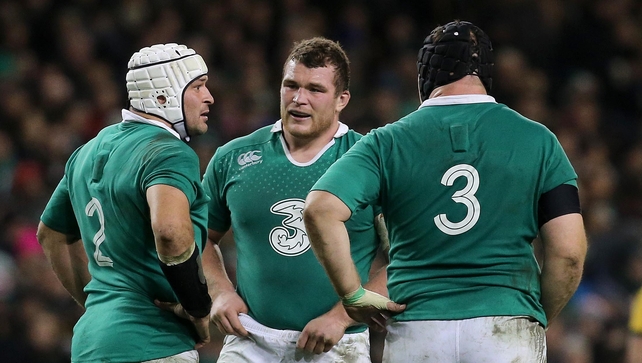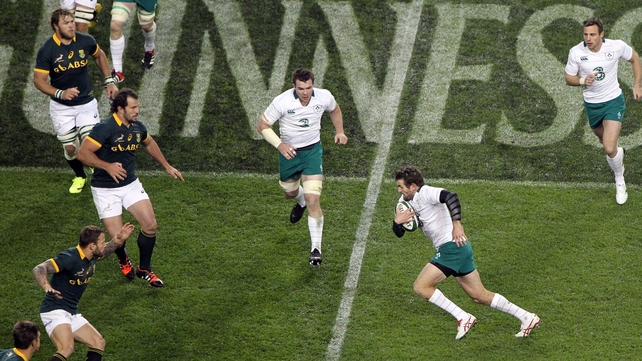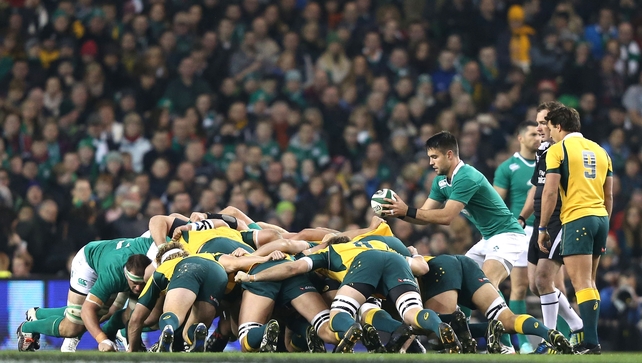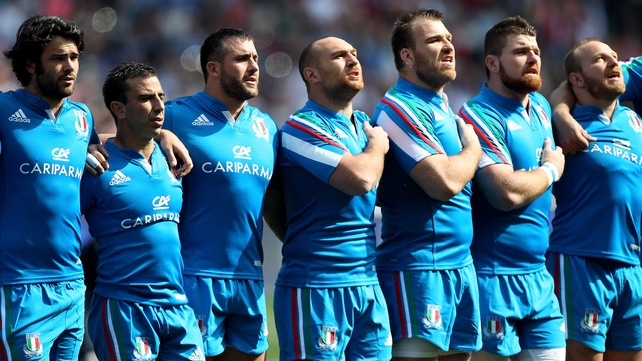Ireland face a major challenge in trying win back-to-back Six Nations Championships for the first time in history.
But we go into the competition after a very successful November and with England and France at home we have a great chance of topping the table.
Everyone speaks about the importance of momentum and on that front it is good that we have the weakest team first up, albeit that we meet Italy away from home.
Either England or Wales could come out of Round One with a loss against their name. That could be hard to recover from. Ireland have two home games to follow and I expect us to be unbeaten going in to Round Four against Wales.
The Italy match is about more than just getting a win. I don’t think there will be a Grand Slam winner and points difference is likely to be crucial.
Ireland are the defending champions because they were able to run up a big score and beat Italy 46-7 in Dublin last year.
It will be very hard to match that result this time, Italy are at their best in the early rounds of the tournament. Last year they really put it up to Wales in Cardiff before losing 23-15.
England will play Italy at Twickenham this year while Wales will go to Rome on the last day with a good idea of what they need to do in terms of points. It is a disadvantage for Ireland.
"Ireland's main strength is the ability of the staff to design a gameplan that is specific to the opposition."
Looking at the bigger picture, it will be fascinating to see what Joe Schmidt does with this Ireland team.
It has been widely recognised that Ireland have not offloaded as much as some other teams under Joe. I don’t see that changing too much as their main strength is the ability of the staff to design a gameplan that is specific to the opposition.
The squad then implement that game plan to a really high standard, regardless of who plays. It is always based on building phase after phase to stress opposition defences through the speed they move the ball. Ireland had the quickest ruck ball in the Six Nations last season. The movement of the ball from one ruck to the next is superb and everyone has a total understanding of their role in each pattern.
That adds up to a harder time for the defending team, forcing them to concede penalties. In a tight Six Nations game, those penalties are absolutely vital.
Ireland also have an ability to score from structured attacks - those ‘power plays’ that they design based on opposition weaknesses - and we can expect to see a new set of those as well.
The right calls have been made

In terms of selection, the Irish management have kept faith in Mike Ross at tighthead despite him losing his place to Martin Moore in Leinster’s European Cup side for the last two rounds.
I think that this is the correct call. We need Ross in top form going into the World Cup while both Moore and Nathan White are on the way back from long term injury.
Another player coming back from a long term injury is Sean O’Brien. Again, I think that it’s the right call to get him into the starting line up this week as following his run out against the Saxons last weekend another 60 odd minutes this week at Test match level will be a massive help in having him at his best France and England.
Jamie Heaslip’s AC joint issue means it is not worth risking him.
Jordi Murphy's track record at eight gets him in over Tommy O'Donnell although I am sure they looked at playing O’Brien at eight and O’Donnell at seven. They probably feel that Heaslip will be right next week and can slot back in easily.
I am surprised that Ian Keatley has got the nod over Ian Madigan. Madigan has always performed well at out-half under Joe but he has suffered from there being so much chopping and changing at Leinster this season.
Having said that I am delighted for Keatley. He is a very good player in his own right and he has a great opportunity to lay down a marker for his inclusion in the World Cup squad.
Irish backline has huge potential

Jared Payne and Robbie Henshaw get the chance to team up again for only the second time. The hope is that they can settle in and try to build a strong relationship over the coming two months.
It is an exciting and physical back three with Simon Zebo, Tommy Bowe and Rob Kearney all adds up to a back line with huge potential. Our bench has a lot of impact potential on it. The two Cronins, Iain Henderson, O’Donnell and Madigan in particular will give us dynamism when called upon.
Jonathan Sexton, Cian Healy and Heaslip are missing and are a big loss but we have been quite fortunate with injuries and should be able to call on them for the bigger challenges to come further down the line.
Scrum problem in November must be fixed

Ireland do have some challenges however. I highlighted the Irish scrum on Against The Head on Monday and it is an area in need of attention.
It underperformed in the November Internationals and it was a real testament to how efficient we were in other areas that we were able to beat sides of the quality of South Africa and Australia despite it.
The changed scrum protocols have had a huge impact on the dynamics of the scrum. Before, it was all about the hit and if you won that then the job was 80% done.
Initially, the front rows started very close together and basically just leaned in. But recently, teams have been pushing out the distance before engagement as much as they can and players are now creating power even over the shorter gap.
Key movements like extending and dropping the hips together and getting thighs at a 120 degree angle to the torso (the optimum pushing position) are much easier when you win the engagement.
In November, Ireland were too passive on the hit and got knocked backwards. That caused a chain reaction with players losing their foot positions and the scrum becoming vulnerable. It was interesting to see the Wolfhounds pack, which included Saturday's starts Jack McGrath and Mike Ross, being much more aggressive on the engagement.
Ireland cannot afford to scrummage badly in Rome but this is an issue I believe they will have addressed.
Can Italy challenge Ireland anywhere else?

Italy did not win a game in last year's Six Nations and their win over Samoa in November was their first in nine games. Jacques Brunel has changed they way they play and they are much less forward-oriented than they were previously. They have scored some nice tries under Brunel.
But the results haven’t been good recently. The lack of a top class out-half has been a huge weakness for them. The latest player to get a shot there is the New Zealander Kelly Haimona, who qualified under the three-year residency ruling. The former Bay of Plenty player has scored 35 points for the Azzuri in three Tests and has a decent kicking game.
Elsewhere, boring as it is to say it, Sergio Parise is the key man. He is Italy’s one truly world class player and watching him every week in the Top 14, he is in incredible shape and form at the moment. Leonardo Ghiraldini, Josh Furno and Alessandro Zanni are also good forwards and Italy will make life tough for Ireland.
But I expect us to have too much firepower late on and to win by 12 points or more this time.


